In India, summers are the worst and best times of the year. Yes, you guessed it right, it is the season of heat and mangoes. Perhaps the only reason summers become bearable is because it brings along the divine mango. It is the most eagerly awaited fruit of the year and given its versatility it is the most widely used fruit. Pickles, preserves, desserts, drinks, after-mints, seasoning, sun-drying we use it in every imaginable manner. The elders have always encouraged us to have as much mango as possible because it helps in weakening the impact of intense heat and most importantly saves us from heat stroke. This year we hardly experienced any winter while the spring remained almost nonexistent and before we could realize the summer is back. Frankly, the emerging scenario does scare me. Each passing year is making summers longer and more intense. Are we making changes in our lifestyles, are we making the right choices on how and what we consume, have we instilled in our kids the core values respect and empathy and do we practice what we preach them??? There are certain lifestyle choices we need to make and if you haven’t done it till now, its time you do them. Atleast listen to the science environment lessons your child learns ( I know most of us don’t). The do talk about the 3 R – Refuse, Reduce and Recycle.. .. More on I have been making changes in my later posts.
Coming back to the raw or unripe mangoes, we know it helps fight the heat stroke but it should be included on everyday basis is beacuse it also is rich in Vitamin C, B, they aid digestion, it is good for skin and hair, combats cancer, improves memory and so much more.. so make the most of the season. Enjoy foods available in the season to the fullest.
This recipe has been long overdue. The Kachi Keri nu Vaghariyu is also called Kachi Keri nu shaak. This is one of those relishes that we have as soon as the mango season arrives. The jaggery – mango help fight the heat and the more we have the better it is. It is always on the side during the meals or light snacks compensating the need of a sweet-sour chutney. The recipe is Sarika’s and the color is different in both pictures because the type of jaggery used is different. I use organic jaggery that is darker in color hence the vagahriyu I made is quite darker in shade. Rest nothing much changes. Do remember to add the the chili only after the flame has been turned off to preserve the color and intensity of the chilies.
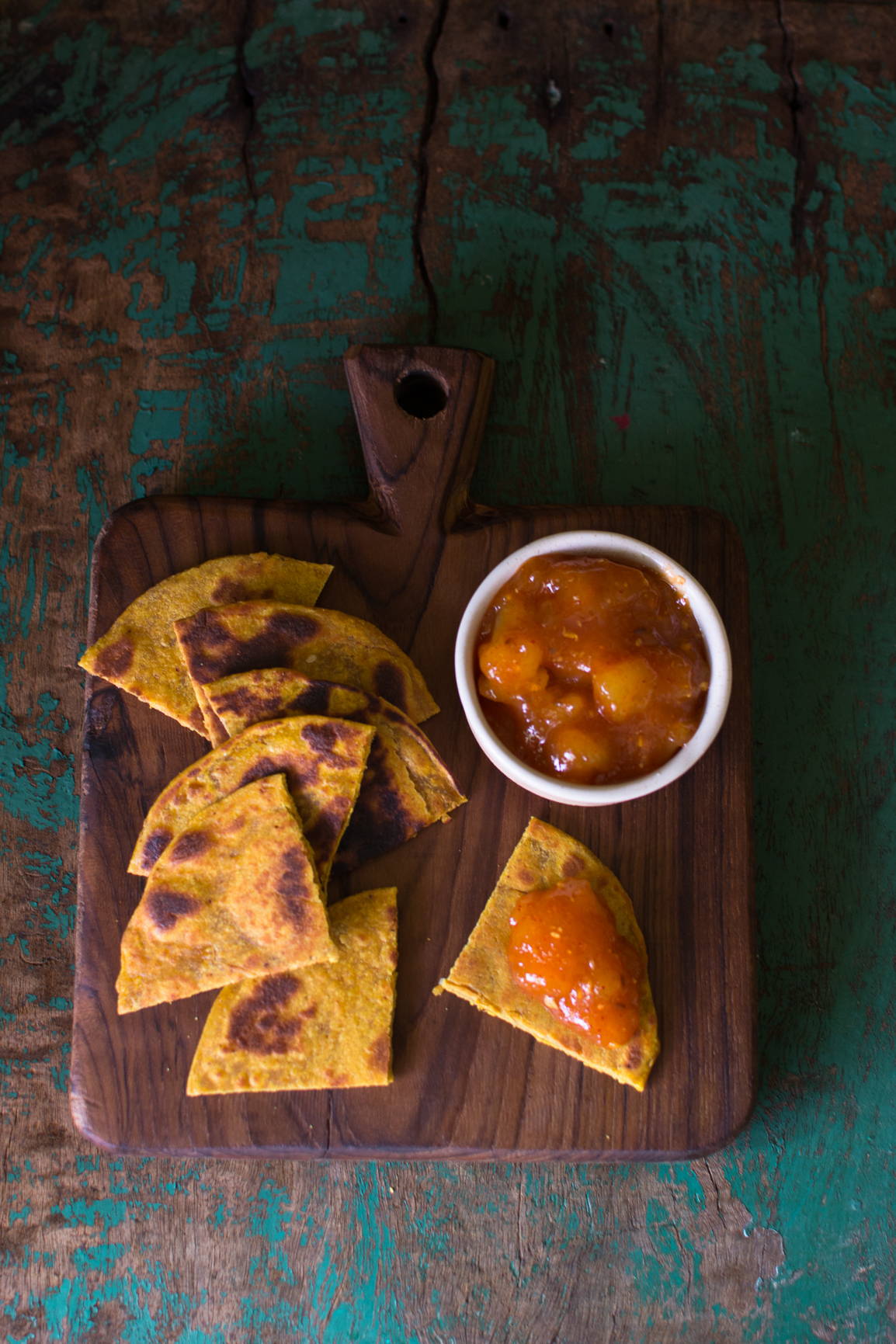
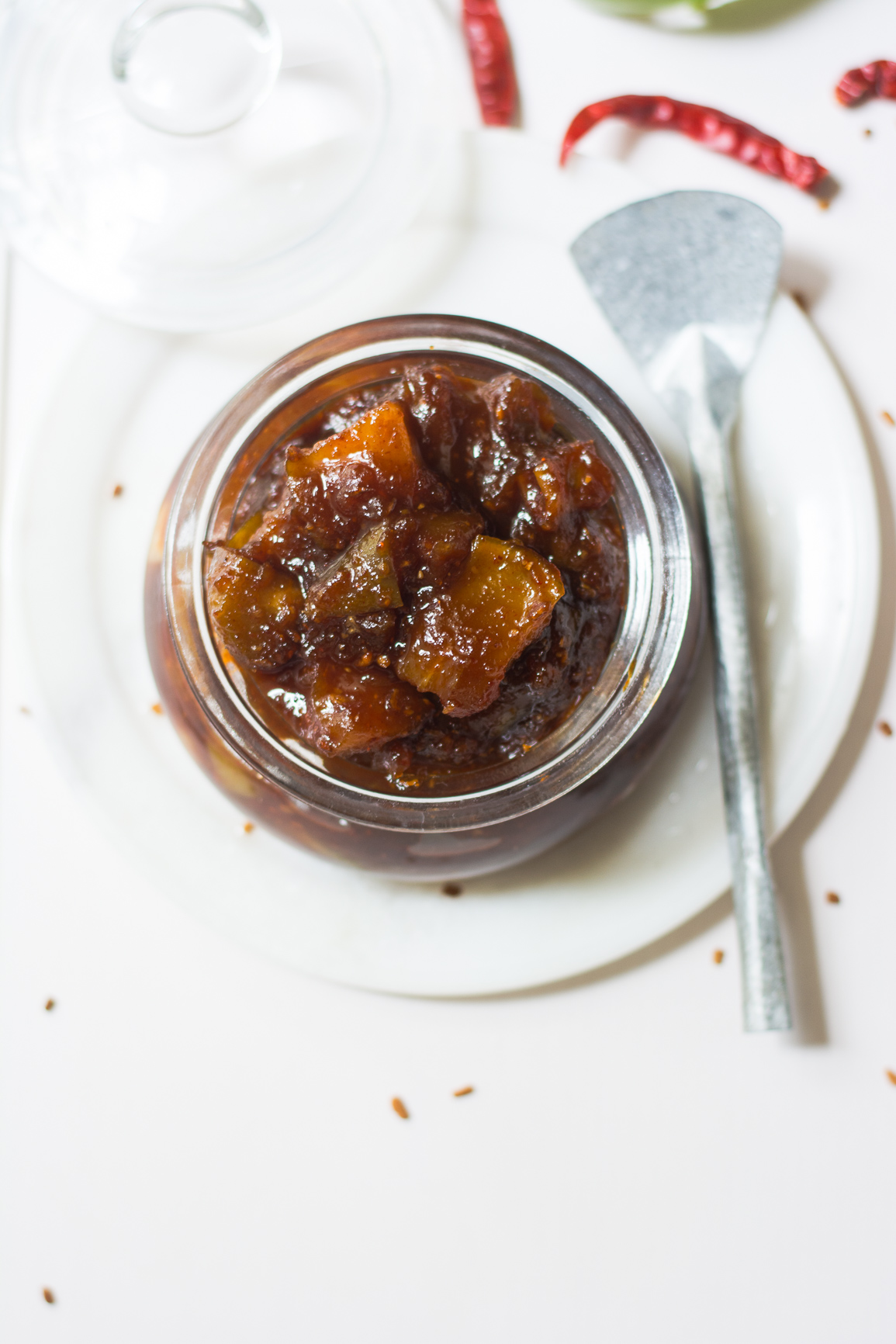
Kachi Keri nu Vaghariyu
Ingredients
- 3 large raw mangoes (500 grams)
- 1 cup jaggery, chopped
- 1 tablespoon methi dana/ fenugreek seeds, roasted and coarsely powdered
- 1 teaspoon jeera/cumin seeds
- 2 tablespoons oil
- 2 tablespoon march/red chilli powder
- 3 dry whole red chillies
- 1/4 teaspoon hing/asafoetida
- 2-3 cloves
- 1 inch stick of cinnamon
- salt to taste
Instructions
Soak the raw mangoes in water for 30 minutes.
Begin with dry roasting the methi seeds in a wok. Once the seeds have roasted well, emit a pleasant aroma, turn off the flame, allow them to cool down and grind them to a coarse powder. Keep aside.
Peel and chop the mangoes in 1 inch cubes.
In a saucepan or kadai take enough water to submerge the chopped mangoes, cook them until fork tender (3/4 cooked).
Strain the mangoes, keep them aside.
Place the same kadai on flame. Add the oil.
Once the oil has heated up, add the whole red chilies, jeera, cloves, cinnamon and hing. Allow them to release their flavours in the oil. Should take 30-40 seconds or less.
Add the strained mangoes. Give it a good stir.
Add the jaggery, salt and methi powder.
Cook until the jaggery has melted and the mixture has bubbled for 5-7 minutes.
Turn of the flame.
Once the Keri nu Vaghariyu has dropped some temperature, add the red chili powder. Mix well.
Store the Kachi Keri nu Vaghariyu in a clean jar.
Enjoy as an accompaniment to regular meals or thepla, dhebra and much more....

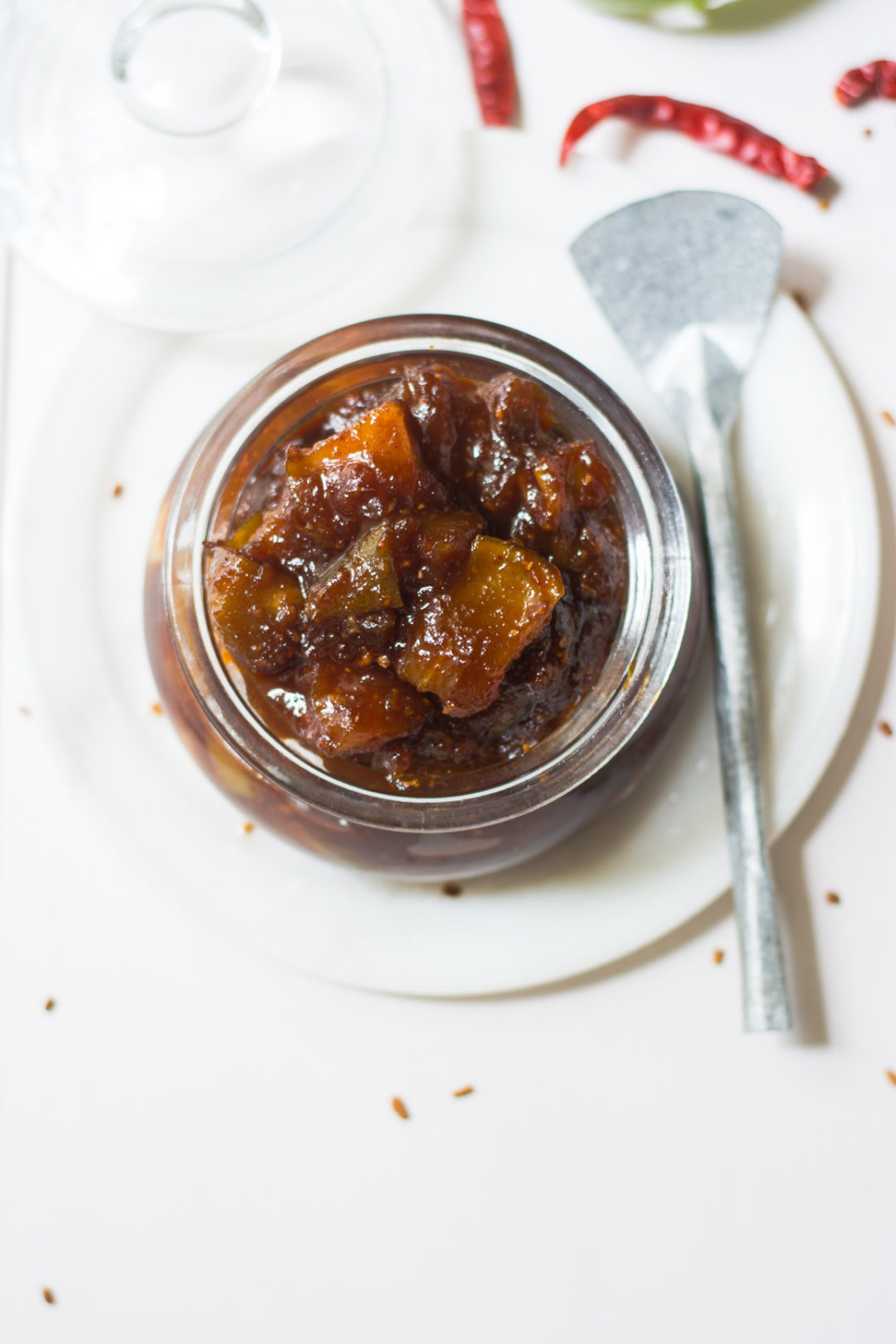

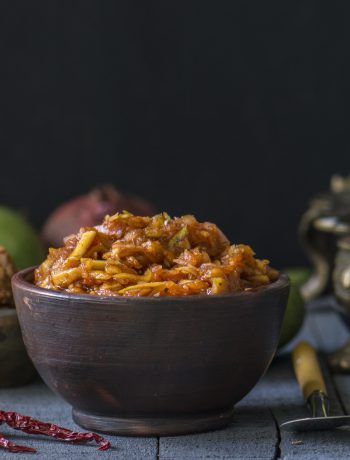
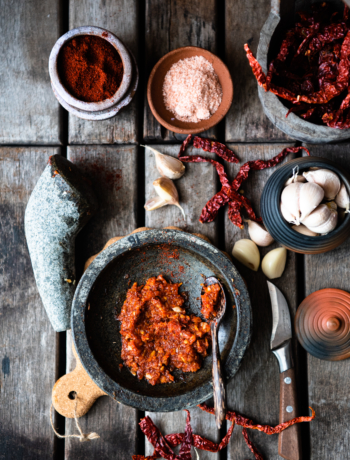
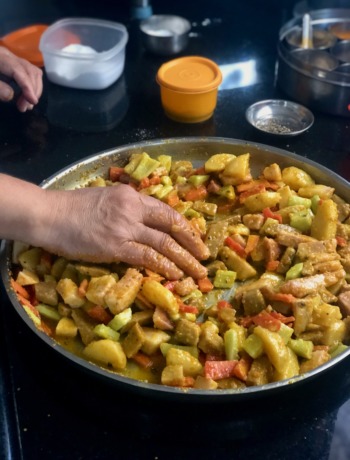
No Comments